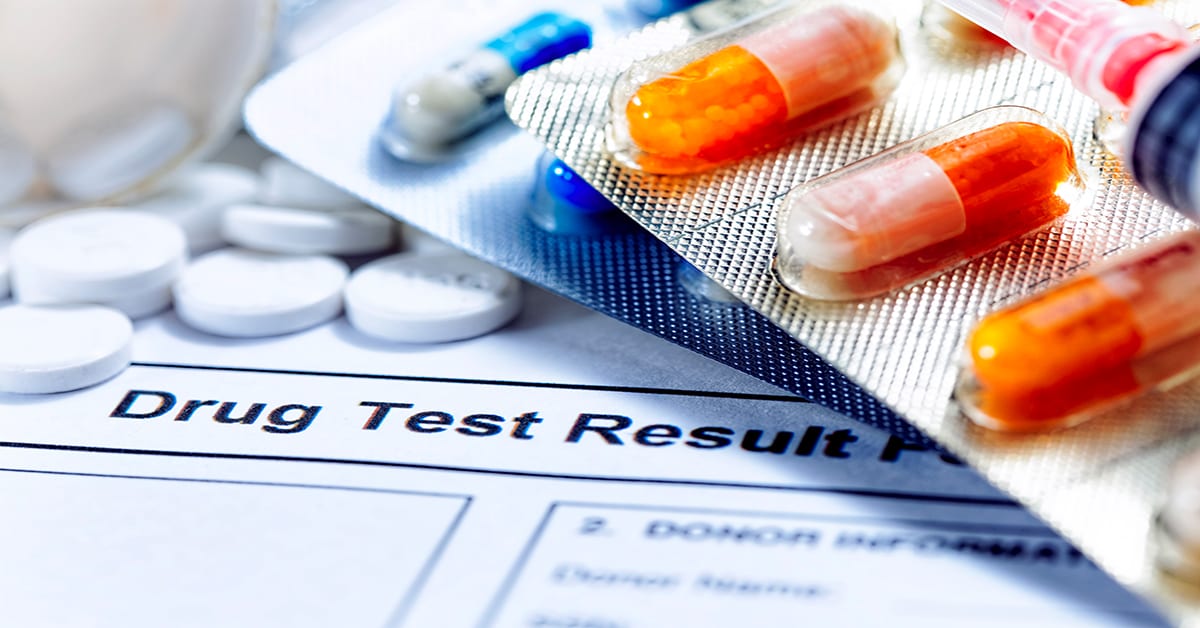For How Long Does a Drug Test Detect Codeine?
The time that codeine can remain in your system and be detected on a drug test varies depending on the type of drug test that is being administered.
Codeine is a common, low-grade opiate found in many pharmaceutical drugs. Most of the codeine out there can be found in prescription codeine cough syrup for people with painful coughs. They can also be used as a minor painkiller prescribed by doctors in pill form after surgeries or for broken bones or minor hurts. Codeine is a relatively unexciting drug but it has been experiencing a lot of coverage in the news media lately for a role it’s playing in the opiate epidemic.
Because opiate addiction almost always begins with prescription pills, codeine is being scrutinized much more than it has been in the past. The following article is a resource for you for any questions you might have about codeine, how long it lasts in the system, and what contributions codeine might have made in mass opioid addictions.

How Long is Codeine Detectable on a Drug Test?
Codeine is an opiate and acts as such on most drug tests. But the length that it can last in the system depends on what type of drug test when is being used. Most common types of drug tests sample urine for detectable amounts of substances in the system. Opiates stay in the system for about 3 days as can be found by urine analysis.
Opiates can also be found in hair tests, although this method is much more expensive and less common. But opiates are detectable about 90 days via a hair sample. Opiates are also detectable in saliva tests. They can be detectable for up to four days with this method.
Is Codeine a Dangerous Drug?
Since codeine is a low-grade and weak opiate, it would take quite a lot for it to be dangerous on its own. But the real danger comes not from the substance itself but the consequences that abuse can lead to. As mentioned before, how about 90% of opiate addictions begin with prescription medications many of those prescribed to the users end up with dependency. Addiction usually happens when prescription opiates are not taken as prescribed. But how often does that happen? Much more than one might think. According to the National Institute of Health:
From 2002 through 2011, approximately 25 million people in the United States began nonmedical use of pain relievers. More than 11 million misused the medications. (NIH)
Codeine may not be responsible for the overdoses, but it certainly. helped some of those addicts get addicted. I think it’s safe to say that codeine can certainly be very dangerous.
Can Codeine be Bought Over the Counter?
Fortunately, you must have a prescription from a doctor to legally obtain codeine. The problem is that so much codeine is already out there in the world from past prescriptions. These bottles of cough syrup can easily be forgotten in medicine cabinets or bathroom drawers and these forgotten opiates sometimes fuel further opiate addiction. That’s why it’s extremely important to get rid of all prescriptions once you’re done using them. It’s not worth keeping around old drugs for. rainy days. You could be creating an addict without even knowing it.
If you or a loved one have an addiction to Codeine or any other drugs, reaching out to Evoke Waltham for help is the most important thing you can do. We can help you on your path to sobriety. Our professionals are standing by, just pick up the phone and we point you to right direction.


